Fiat 500e review, F-150 Lightning price cut, diesel hybrids, curbside EV chargers: Today’s Car News

Do EVs need a breakthrough in battery energy density before they make environmental sense?
And which luxury EV is bringing back the appearance of an internal combustion grille? Will fake tailpipes come next?
This is our look back at the Week In Reverse—right here at City Dwellers—for the week ending April 12, 2024.
In a first drive of the 2024 Fiat 500e electric car, City Dwellers found that this fashion accessory and short-range EV remains a good fit for the city—with many of the same limitations as the first-generation 500e sold on the West Coast.
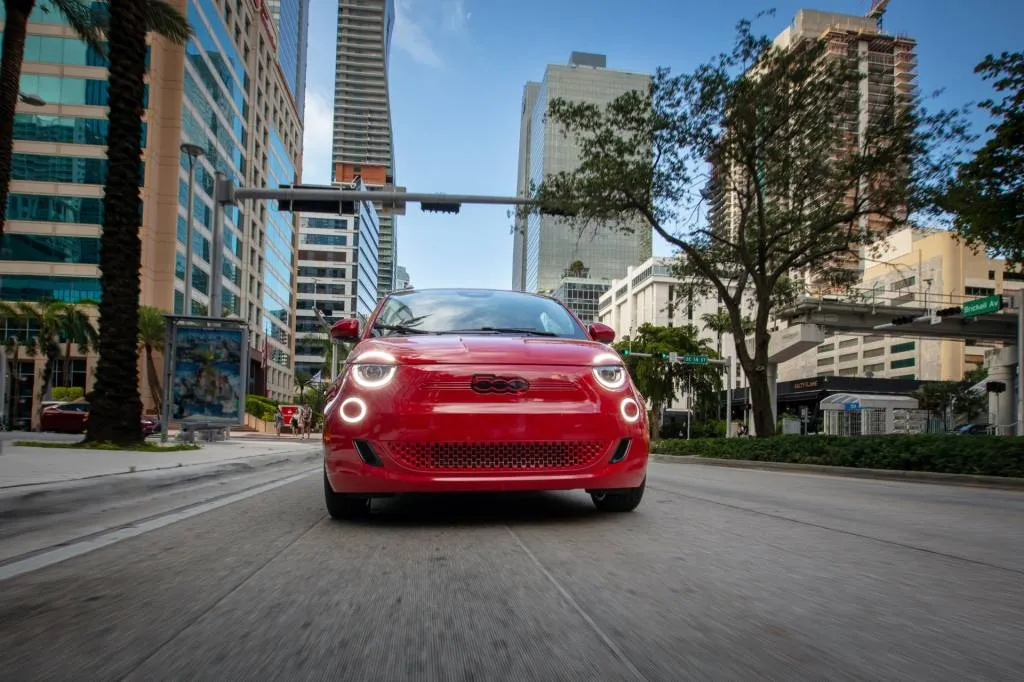
2024 Fiat 500e
The 2024 Ford Mustang Mach-E boasts more range and faster charging—as well as quicker acceleration for much of the lineup—at a price thousands less than when the 2023 Mach-E arrived a year ago. The Mach-E now offers up to 320 miles of EPA range, according to Ford. Top-performance Mach-E GT versions with the Performance Upgrade are also now capable of outperforming the Tesla Model Y Performance, Ford claims.
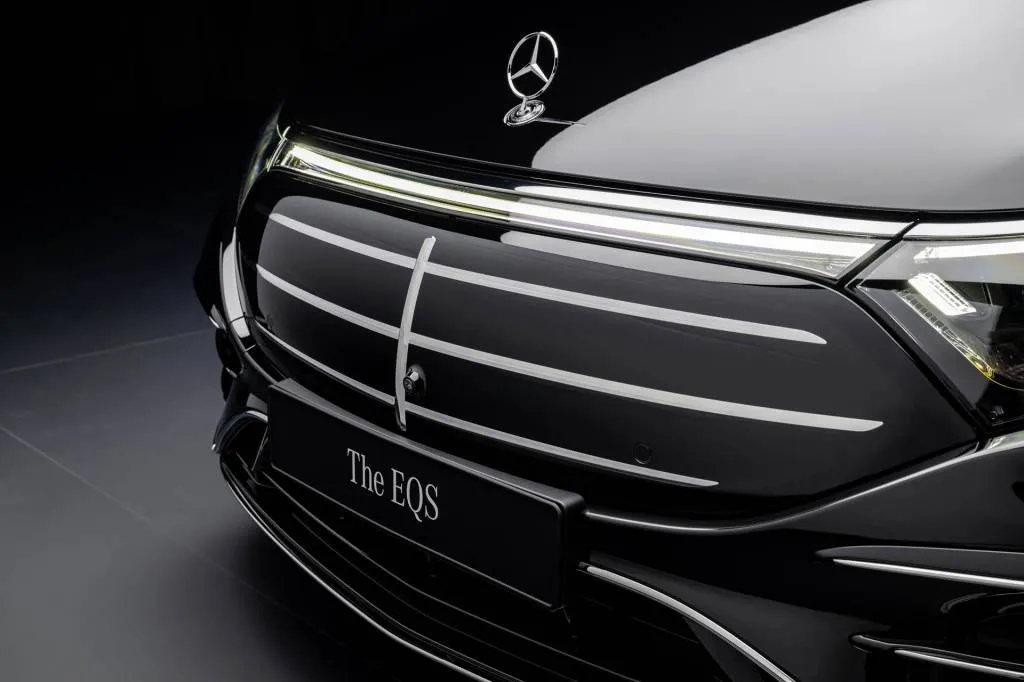
2025 Mercedes-Benz EQS
The big 2025 Mercedes-Benz EQS hatchback is getting an extensive refresh for the new model year, including more battery capacity and driving range, improved brakes, and a limousine-like rear seating package. A grille that attempts to mimic that of the gasoline S-Class is also part of the revamp.
Ford is also already reversing course on recent F-150 Lightning price hikes. It’s cut 2024 F-150 Lightning prices by up to $5,500—with the recently introduced Flash version offering the biggest price cut and several mid-range models cut by thousands.
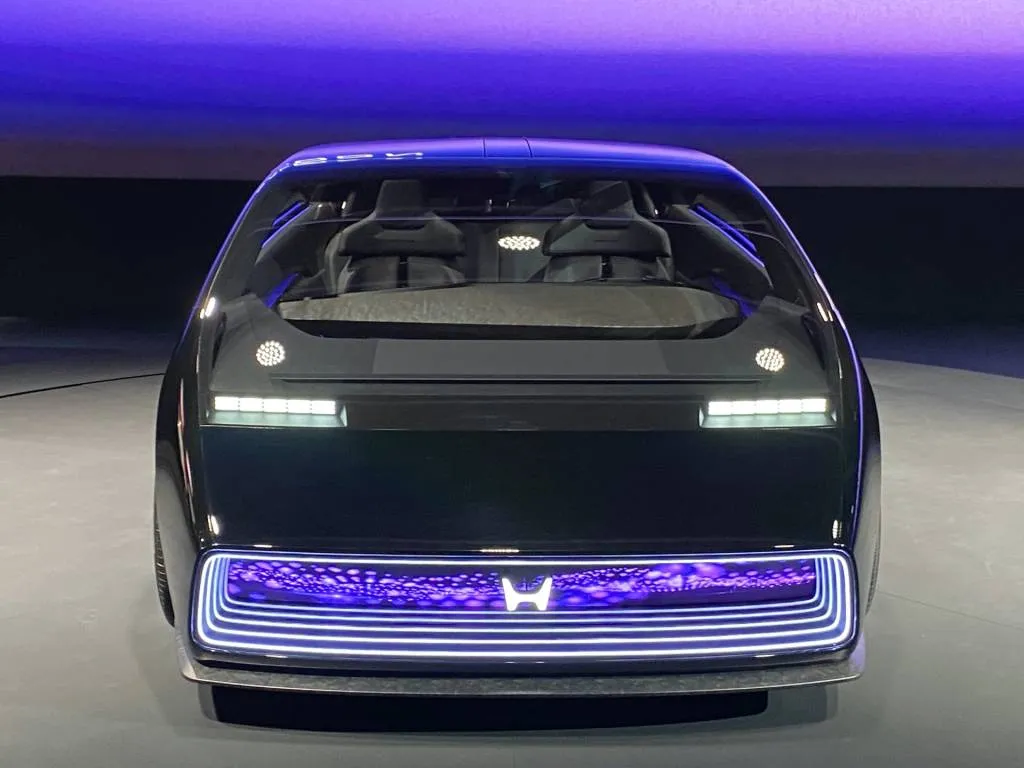
Honda Saloon Concept – 2024 CES
Honda touted the flexibility being built into its Ohio EV hub, which might build hundreds of EVs a day or a mix skewing heavily to hybrids, depending on demand. Included in the buildout for the brand’s next-generation EVs are 31-foot-tall, 6,000-ton die-cast machines that outdo those used at Giga Texas.
Kia last week detailed plans for its shift toward EVs and electrified powertrains through the decade, and it hasn’t budged in its target of 1.6 million Kia EV sales annually by 2030. But it does now see about 800,000 annual hybrid, plug-in hybrid, and fuel-cell sales by then—making electrified vehicles 58% of its mix in 2030.

Voltpost streetside EV charger
A significant number of U.S. curbside EV chargers appears to soon be on the way. Voltpost announced plans to roll out its lamppost-based EV chargers in major U.S. metro areas including New York, Chicago, and Detroit. These Level 2 AC chargers will have 20 feet of retractable cable and a supporting app, and installation costs a fraction of what siting and installing a separate charger would.
Toyota had previously suggested that it would stop selling diesels in passenger vehicles. But it continues to sell diesel SUVs across most regions, even in Europe. And in recent remarks an Australian executive for the company insisted that diesel “is not going to die off anytime soon,” and hinted that diesel might be paired with hybrid powertrains “particularly for heavy vehicles.”
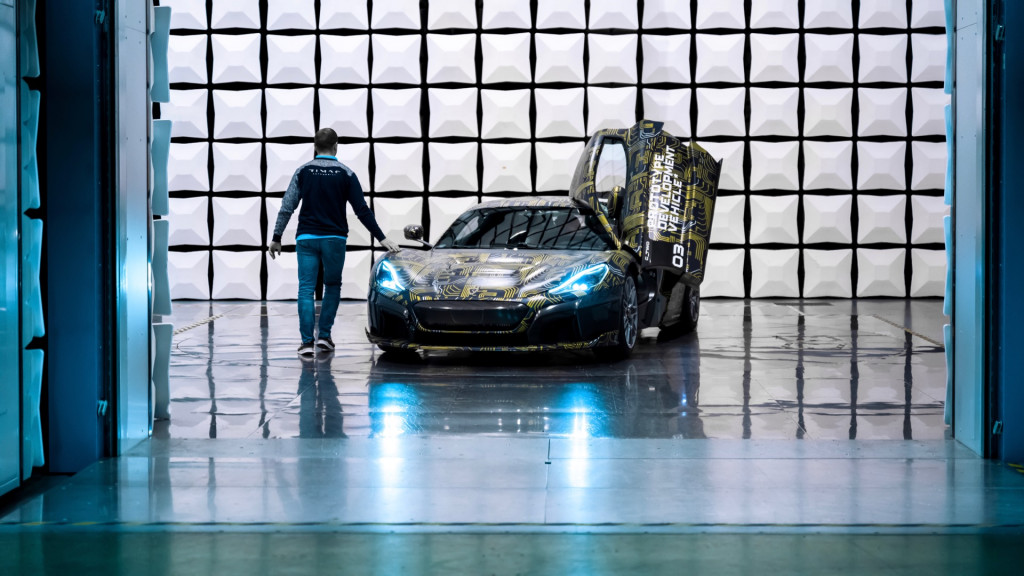
Rimac C_Two electromagnetic-emissions testing
Rimac announced that it will help BMW with next-gen EV batteries, as the company that started with a BMW EV conversions, and then a supercar maker, now also shifts roles to a high-tech supplier.
Stellantis CEO Carlos Tavares last week claimed that EVs need a “breakthrough” in battery-cell energy density before they make sense from an environmental standpoint versus combustion vehicles—partly because of all the extra weight and raw materials. That stands in stark contrast to the overwhelming majority of academic papers and calculations from everyone ranging from environmental organizations to automakers, suggesting that EVs in their present state of tech pay off quickly in CO2 and overall environmental impact.

PSA Group CEO Carlos Tavares and GM CEO Mary Barra
With a bill signed into law last week, New Jersey is marking up EV ownership with an additional $1,000 upfront fee that applies on top of other existing registration fees. While it effectively replaces the role of the gas tax for EVs in funding road maintenance, it could amount to a disincentive toward the state’s adoption of California’s EV mandate and its goel to hit 50% EV sales by 2027 and 100% by 2035.
Despite long-held plans to align with California emissions standards, Connecticut and Maine have delayed adopting California’s EV sales mandate with recent decisions. EV advocates, concerned this will push out adoption of the rules to later in the decade, point to misinformation campaigns from fossil-fuel-funded groups.
Ford, GM, and Stellantis have been relying on sales of expensive full-size pickup trucks to effectively bankroll the EV push. But now, will sagging sales due to high interest rates impact the future EV product rollout?
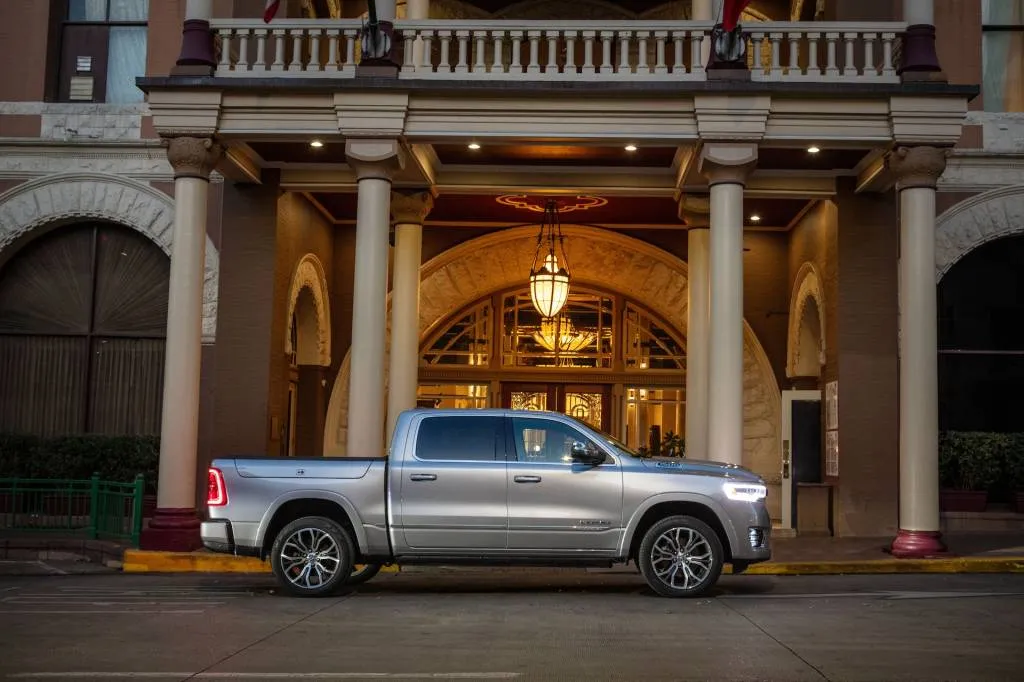
2025 Ram 1500 Tungsten
Electric passenger cars plus electric trucks of all kinds could add up to 65% of today’s total grid demand by 2050, noted a study out this week from the Natural Resources Defense Council and EPRI, which represents utilities. But according to the study, efficiency improvements to EVs could pay off big by reducing that load, cutting costs for all Americans and not only those who are driving an EV by then.
And according to polling results out this week from Gallup, American EV ownership is growing, yet fewer car shoppers are considering EVs who don’t already own one. Gallup found these results to be increasingly tied to political affiliation and noted, as various other studies have, that older Americans are less likely to buy (and consider) EVs.
_______________________________________
Follow City Dwellers on Facebook and Twitter